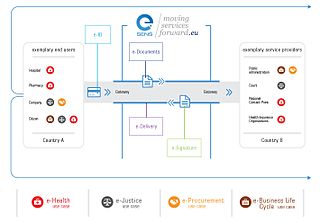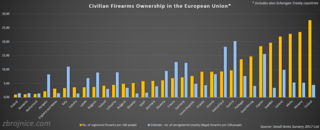Related Research Articles
Trade secrets are a type of intellectual property that includes formulas, practices, processes, designs, instruments, patterns, or compilations of information that have inherent economic value because they are not generally known or readily ascertainable by others, and which the owner takes reasonable measures to keep secret. Intellectual property law gives the owner of a trade secret the right to restrict others from disclosing it. In some jurisdictions, such secrets are referred to as confidential information.

The Data Protection Directive, officially Directive 95/46/EC, enacted in October 1995, is a European Union directive which regulates the processing of personal data within the European Union (EU) and the free movement of such data. The Data Protection Directive is an important component of EU privacy and human rights law.

The Data Protection Act 1998 was an Act of Parliament of the United Kingdom designed to protect personal data stored on computers or in an organised paper filing system. It enacted provisions from the European Union (EU) Data Protection Directive 1995 on the protection, processing, and movement of data.
A privacy policy is a statement or legal document that discloses some or all of the ways a party gathers, uses, discloses, and manages a customer or client's data. Personal information can be anything that can be used to identify an individual, not limited to the person's name, address, date of birth, marital status, contact information, ID issue, and expiry date, financial records, credit information, medical history, where one travels, and intentions to acquire goods and services. In the case of a business, it is often a statement that declares a party's policy on how it collects, stores, and releases personal information it collects. It informs the client what specific information is collected, and whether it is kept confidential, shared with partners, or sold to other firms or enterprises. Privacy policies typically represent a broader, more generalized treatment, as opposed to data use statements, which tend to be more detailed and specific.
Information privacy, data privacy or data protection laws provide a legal framework on how to obtain, use and store data of natural persons. The various laws around the world describe the rights of natural persons to control who is using its data. This includes usually the right to get details on which data is stored, for what purpose and to request the deletion in case the purpose is not given anymore.
Privacy law is the body of law that deals with the regulating, storing, and using of personally identifiable information, personal healthcare information, and financial information of individuals, which can be collected by governments, public or private organisations, or other individuals. It also applies in the commercial sector to things like trade secrets and the liability that directors, officers, and employees have when handing sensitive information.
Information sensitivity is the control of access to information or knowledge that might result in loss of an advantage or level of security if disclosed to others.
Government procurement or public procurement is undertaken by the public authorities of the European Union (EU) and its member states in order to award contracts for public works and for the purchase of goods and services in accordance with principles derived from the Treaties of the European Union. Such procurement represents 14% of EU GDP as of 2017, and has been the subject of increasing European regulation since the 1970s because of its importance to the European single market.
United Kingdom employment equality law is a body of law which legislates against prejudice-based actions in the workplace. As an integral part of UK labour law it is unlawful to discriminate against a person because they have one of the "protected characteristics", which are, age, disability, gender reassignment, marriage and civil partnership, race, religion or belief, sex, pregnancy and maternity, and sexual orientation. The primary legislation is the Equality Act 2010, which outlaws discrimination in access to education, public services, private goods and services, transport or premises in addition to employment. This follows three major European Union Directives, and is supplement by other Acts like the Protection from Harassment Act 1997. Furthermore, discrimination on the grounds of work status, as a part-time worker, fixed term employee, agency worker or union membership is banned as a result of a combination of statutory instruments and the Trade Union and Labour Relations (Consolidation) Act 1992, again following European law. Disputes are typically resolved in the workplace in consultation with an employer or trade union, or with advice from a solicitor, ACAS or the Citizens Advice Bureau a claim may be brought in an employment tribunal. The Equality Act 2006 established the Equality and Human Rights Commission, a body designed to strengthen enforcement of equality laws.
The Transparency Directive, Transparency Obligations Directive or Directive 2004/109/EC is an EU Directive issued in 2004, revising an earlier Directive 2001/34/EC. The Transparency Directive was amended in 2013 by the Transparency Directive Amending Directive.
The German Bundesdatenschutzgesetz (BDSG) is a federal data protection act, that together with the data protection acts of the German federated states and other area-specific regulations, governs the exposure of personal data, which are manually processed or stored in IT systems.

The European Union (EU) Environmental Policy was initiated in 1973 with the "Environmental Action Programme" at which point the Environmental Unit was formed. The policy has thereafter evolved "to cover a vast landscape of different topics enacted over many decades" (Reuters) and in 2015 the Institute for European Environmental Policy estimated that "the body of EU environmental law" amounted to 500+ directives, regulations and decisions.
"Over the past decades the European Union has put in place a broad range of environmental legislation. As a result, air, water and soil pollution has significantly been reduced. Chemicals legislation has been modernised and the use of many toxic or hazardous substances has been restricted. Today, EU citizens enjoy some of the best water quality in the world"

On 6 May 2015, the European Commission, led at the time by Jean-Claude Juncker, communicated the Digital Single Market strategy which intends to remove virtual borders, boost digital connectivity, and make it easier for consumers to access cross-border online content. The Digital Single Market, which is one of the European Commission's 10 political priorities, aims to fit the EU's single market for the digital age – moving from 28 national digital markets to a single one and then to open up digital services to all citizens and strengthen business competitiveness in the digital economy. In other words, the Digital Single Market is a market characterized by ensuring the free movement of people, services and capital and allowing individuals and businesses to seamlessly access and engage in online activities irrespective of their nationality or place of residence. Fair competition conditions and a high level of protection of personal and consumer data are applied.

Media freedom in the European Union is a fundamental right that applies to all member states of the European Union and its citizens, as defined in the EU Charter of Fundamental Rights as well as the European Convention on Human Rights. Within the EU enlargement process, guaranteeing media freedom is named a "key indicator of a country's readiness to become part of the EU".

Access to public information and freedom of information (FOI) refer to the right to access information held by public bodies also known as "right to know". Access to public information is considered of fundamental importance for the effective functioning of democratic systems, as it enhances governments' and public officials' accountability, boosting people's participation and allowing their informed participation into public life. The fundamental premise of the right to access public information is that the information held by governmental institutions is in principle public and may be concealed only on the basis of legitimate reasons which should be detailed in the law. Access to public information builds on the principle that in a democratic system people should be in the condition of accessing a wide range of information in order to effectively participate in public life as well as on matters affecting them.

Directive (EU) 2021/555 is a legal act of the European Union which sets minimum standards regarding civilian firearms acquisition and possession that EU member states must implement into their national legal systems. It codified Council Directive 91/477/EEC of 18 June 1991.
The ePrivacy Regulation (ePR) is a proposal for the regulation of various privacy-related topics, mostly in relation to electronic communications within the European Union. Its full name is "Regulation of the European Parliament and of the Council concerning the respect for private life and the protection of personal data in electronic communications and repealing Directive 2002/58/EC ." It would repeal the Privacy and Electronic Communications Directive 2002 and would be lex specialis to the General Data Protection Regulation. It would particularise and complement the latter in respect of privacy-related topics. Key fields of the proposed regulation are the confidentiality of communications, privacy controls through electronic consent and browsers, and cookies.
The German Law on the Protection of Trade Secrets, or Trade Secrets Law in short, serves to protect business secrets against unauthorized acquisition, use, and disclosure. The law implements the Directive (EU) 2016/943 on the Protection of Trade Secrets in German law. It replaces the right to secrecy, which was previously regulated in §§ 17-19 of the Act Against Unfair Competition.
References
- 1 2 Council of the EU, Trade secrets protection: Council adopts new directive, Press Release 244/16, published 27 May 2016, accessed 12 May 2023
- 1 2 European Commission, Trade Secrets, accessed 3 July 2016
- ↑ Directive (EU) 2016/943 of the European Parliament and of the Council of 8 June 2016 on the protection of undisclosed know-how and business information (trade secrets) against their unlawful acquisition, use and disclosure: Article 19.1
- ↑ Bird and Bird, Latest News on the Trade Secrets Directive, accessed 3 July 2016